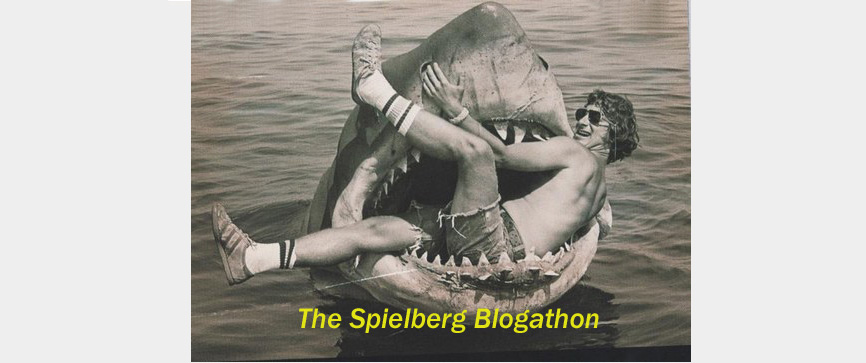
A.I. Artificial Intelligence (2001): A Film by Steven Spielberg
by Carson Lund
Frankly, A.I. possesses qualities of the termite and the elephant: on the one hand, there is the haphazard, messy presentation in service of a scatterbrained script that bursts with potentially intriguing ideas and on the other, there is the superficial slickness, the empty-headed spectacle, and the ultimately watered-down substance. The tension makes for an experience that is profoundly aggravating during the fact and somewhat of a growing curiosity after. The aggravation met its pinnacle for me in the much-discussed "double ending" of the film, in which Spielberg almost concludes with a succinct and affecting summation of the film's thematic preoccupations only to burst into an outrageously didactic and less satisfying coda. One of the most revelatory images in all of Spielberg's career is that of David in his sunken futuristic cargo staring straight ahead at a glowing blue fairy while trapped inside a Coney Island Ferris wheel. Not only is it visually thrilling but it also presents a rather penetrating and accurate insight into the state of the human race: we are constantly looking ahead to our goals, believing in the unreachable, and even if we are trapped in a fundamental way, unable to fully enlighten ourselves, it doesn't make the experience of searching any less fulfilling. Never mind Spielberg's irksome tendency to dilute the simple power of his images in this scene (David's stuffed bear sidekick's reiteration of "we're trapped") and in the scene directly prior (William Hurt's spelling out of this very philosophy) - this is thoughtful filmmaking at a blockbuster level.
Escapism as Art: Steven Spielberg's Duel
by Eric Kohn
Close Encounters of the Third Kind
by Ratnakar Sadasyula
In sharp contrast to other alien movies, which generally depicted them as nasty, scheming monsters, Spielberg actually breaks ground here by showing them as friendly and of course he takes it further in E.T. by showing the bonding between an alien and a young boy. Actually in a way the fascination for UFO’s and aliens, is a reflection of average American paranoia. During the cold war it was of course those Russians. So this constant fear of the other, could be Russians/Germans/Japs, some how explains the plethora of literature and movies dealing with aliens attacking planet Earth. Of course the extreme manifestation of this paranoia could be seen in movies like Independence Day. James Cameron again attempted a similar theme of human-alien bonding, in The Abyss, but there it went a bit deeper, with the aliens warning Earth of destruction, if the arms race was not stopped.
Something Evil vs. Duel
by Simon Abrams
If you compare Something Evil, an obscure, made-for-tv Rosemary's Baby knockoff Steven Spielberg directed in 1972, with Duel, his more well-known 1971 TV movie about a man menaced by a killer truck, you'll see how far the artist regressed over the course of a year. While it's easy to blame writer Robert Clouse's weak screenplay for Something Evil's shortcomings, Richard Matheson's script for Duel could have just as easily automatically sank the project beneath the pretension of it macho premise. The key difference between the two films is their subject matter: Something Evil is about a mother's fears of losing influence over her children while Duel is essentially about gay panic inspired by a traumatic car accident (or at least, the film's comparatively more interesting first half is). Though I readily admit that I could be making something out of nothing here, the fact remains: Spielberg has never successfully made a movie centered around a woman's world. The absent father figure is a staple of his cinema because his movies are typically about men struggling to regain their agency. No dad means no manly influence, which means a lot more in Spielberg's world than you might suspect at first glance.
Loving and Hating My Idol
by Fei Meng
Unlike most or all of the other contributors to this blogathon, I identify myself as a filmmaker. No, I'm not a professional yet, but having gone through film school and directed a number of shorts myself, I can at least offer the perspective of a filmmaker. The hardcore technical aspects of the craft are irrelevant to the discussion; what I wish to relate is what I think about Spielberg as a fellow artist of cinema and what he means to me in that context. For me, loving and hating Spielberg is not so much about the movies themselves as it is about about what he represents as an artist.
Memories of Jurassic Park
by Rob Humanick
Sad that it's ending today... but all good things must end. Many thanks to all those who contributed to the blogathon, advertised it, and read the pieces during what is the busiest time of the year for all of us, no less. We couldn't have done it without you.
Happy New Year, everyone. Much love.




